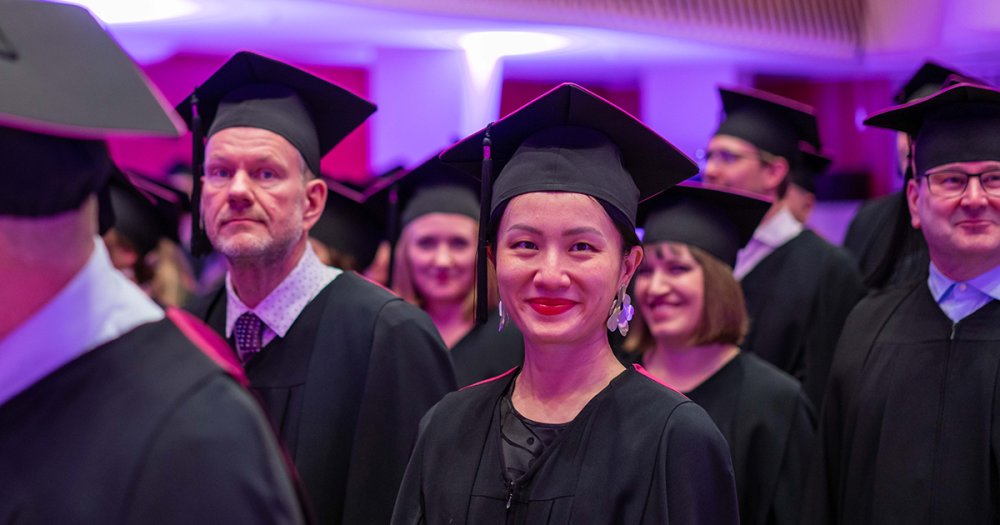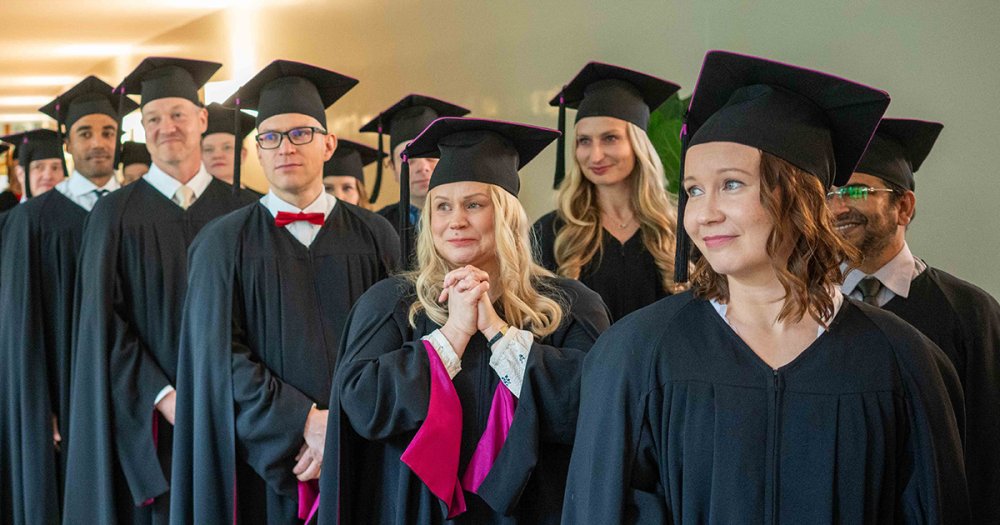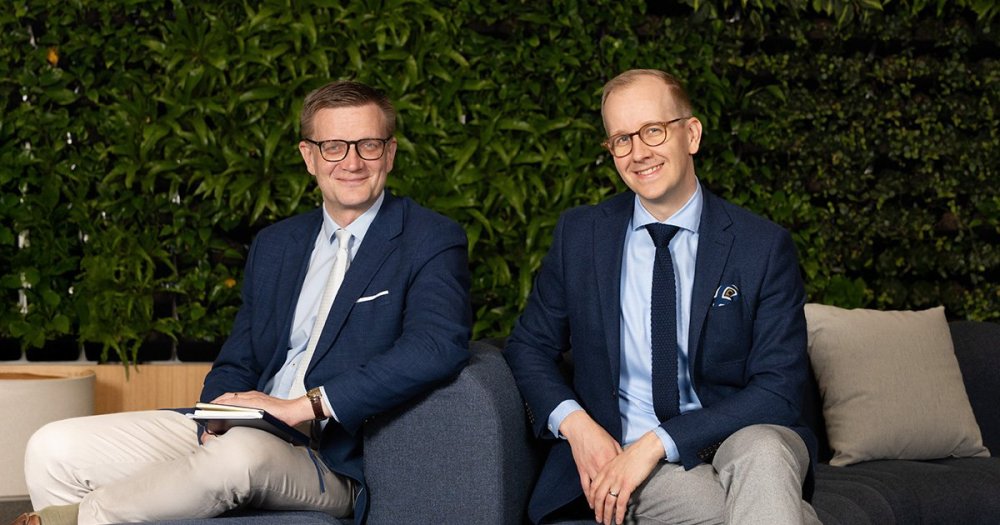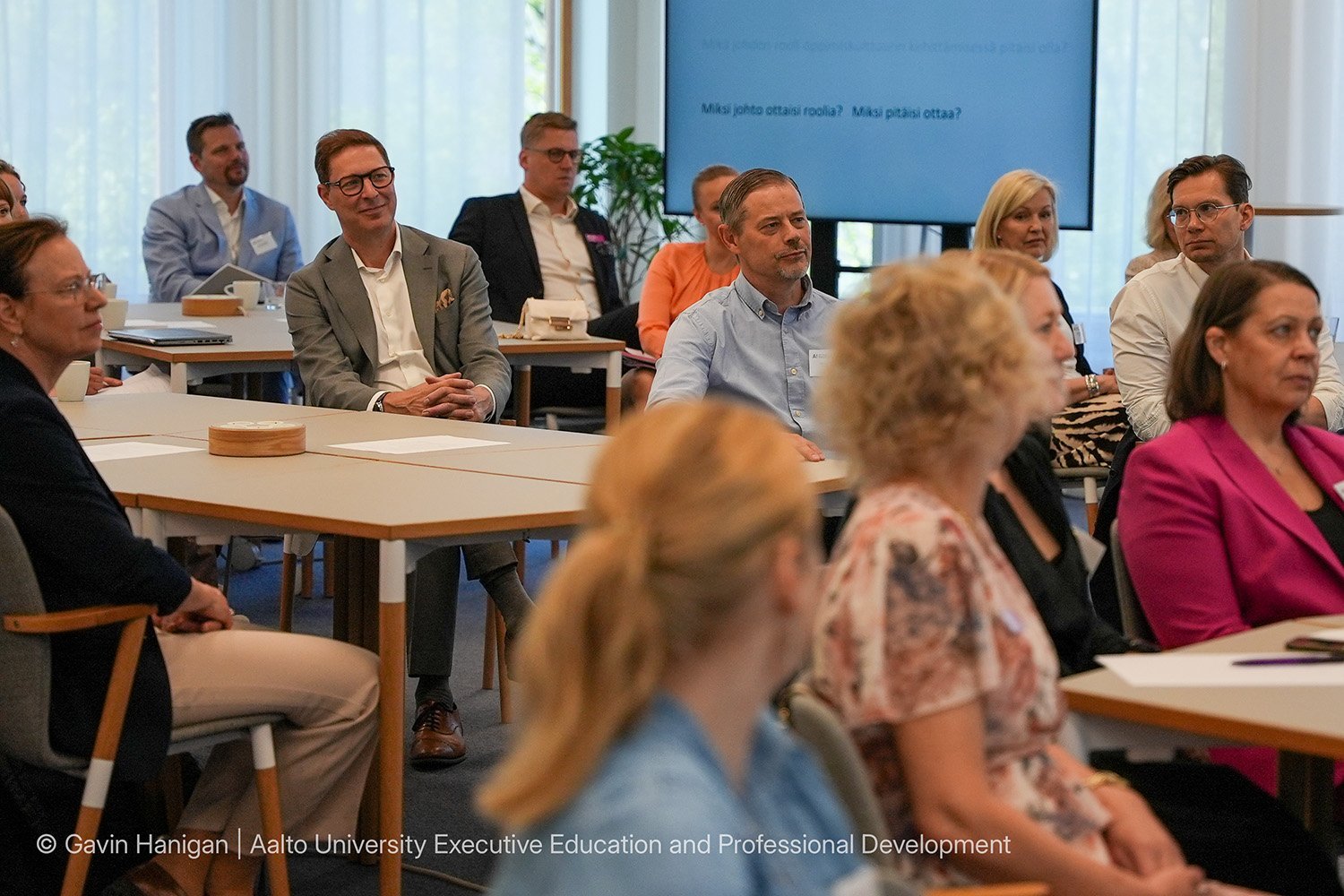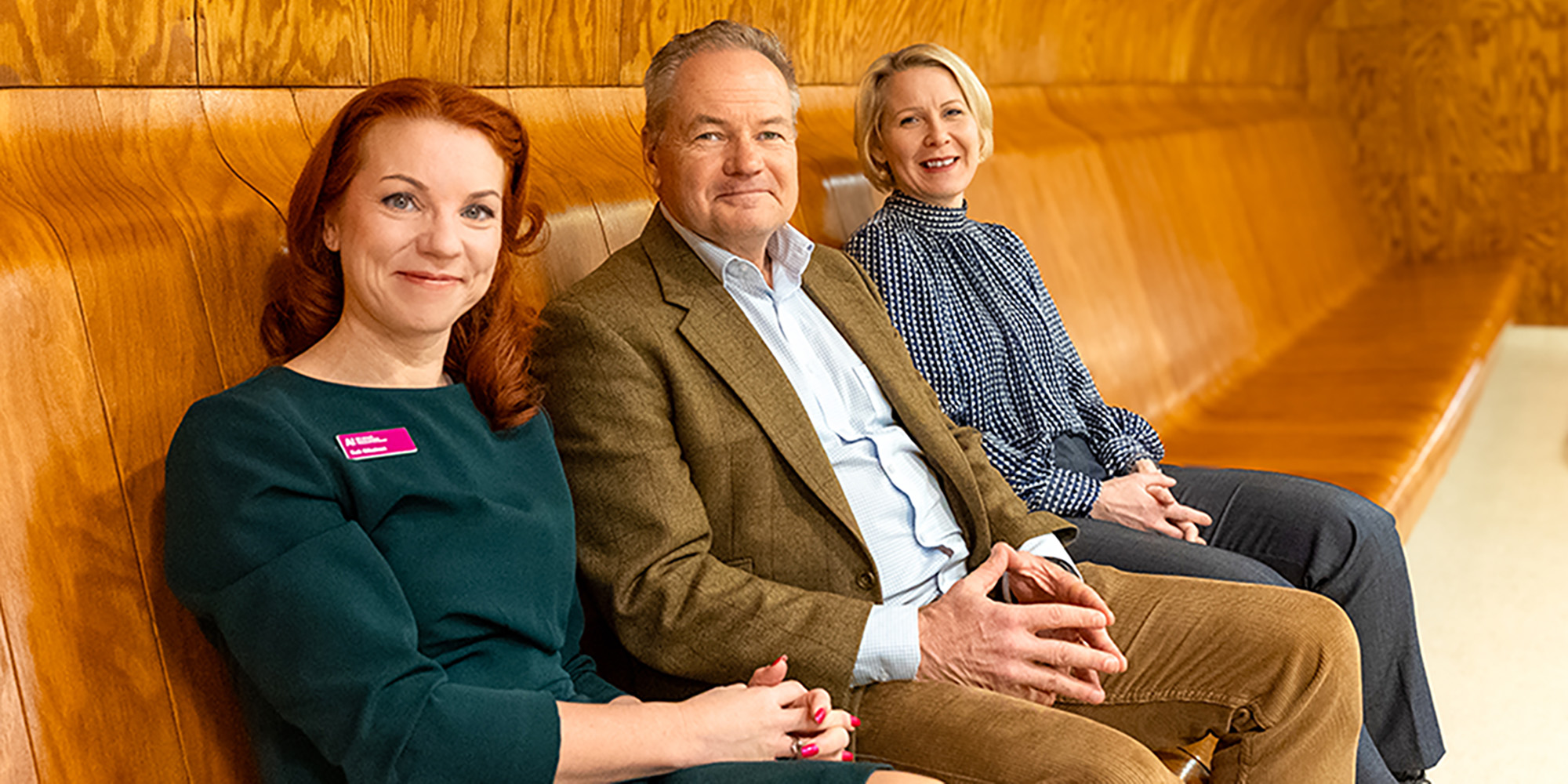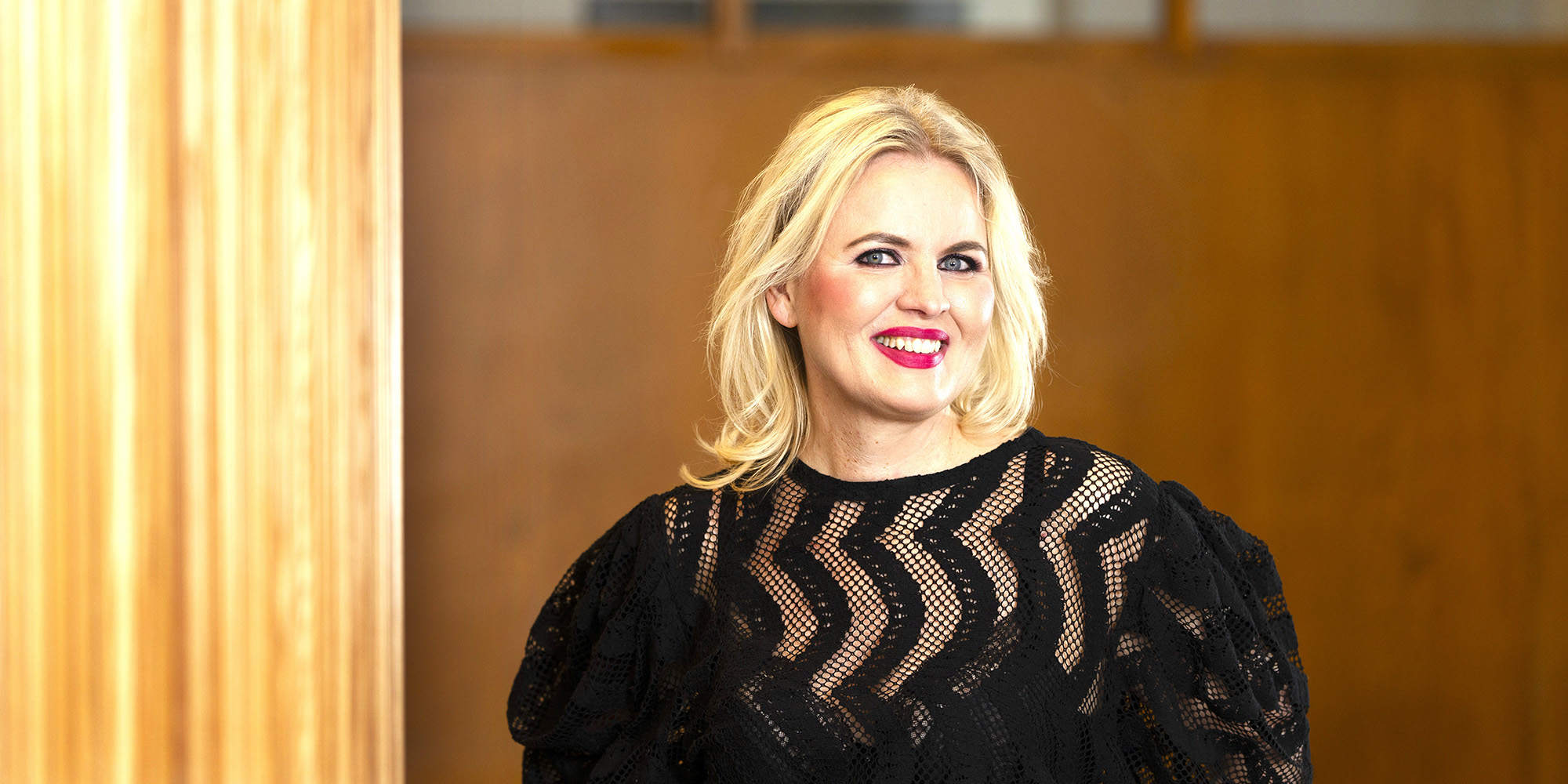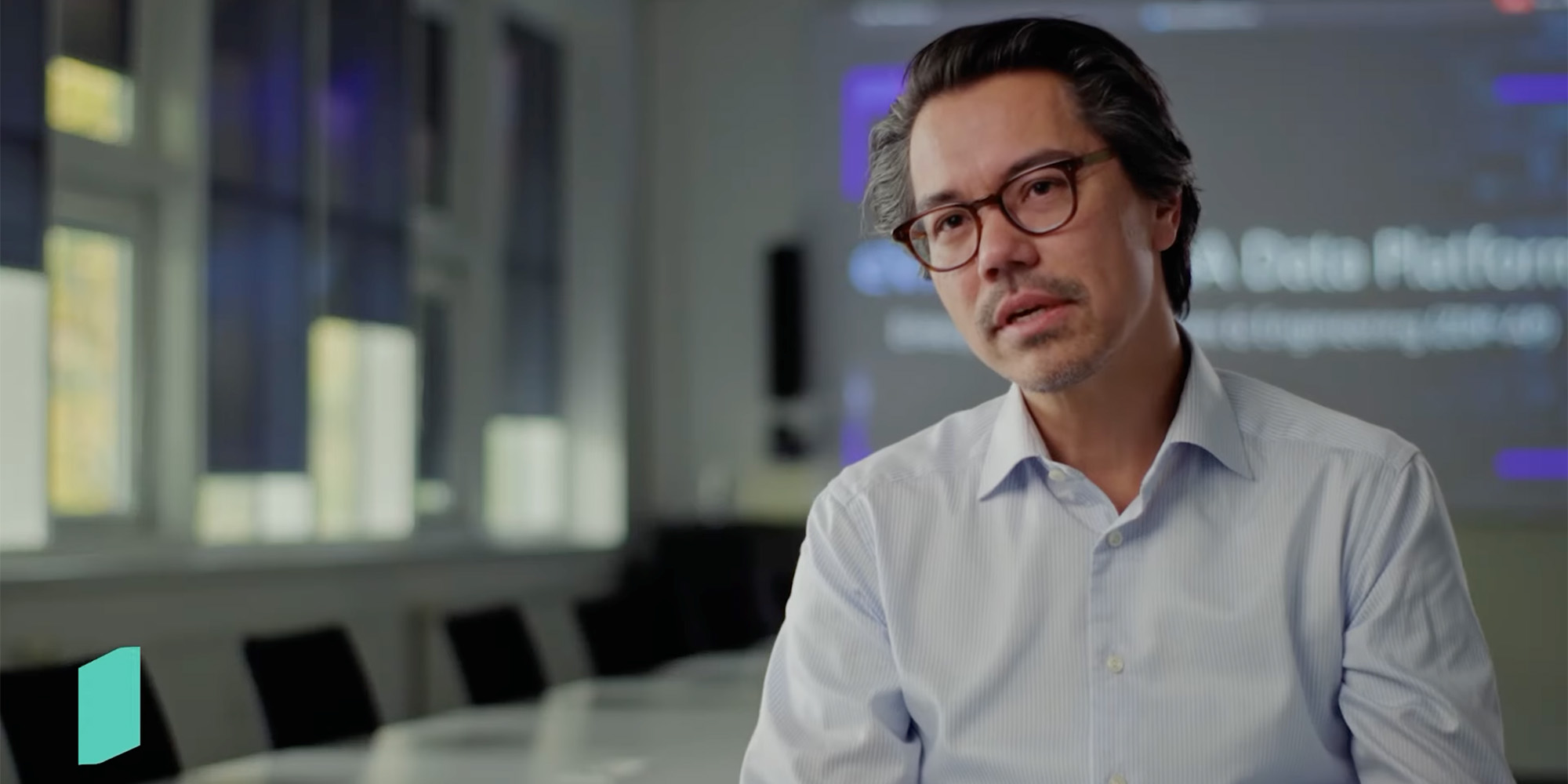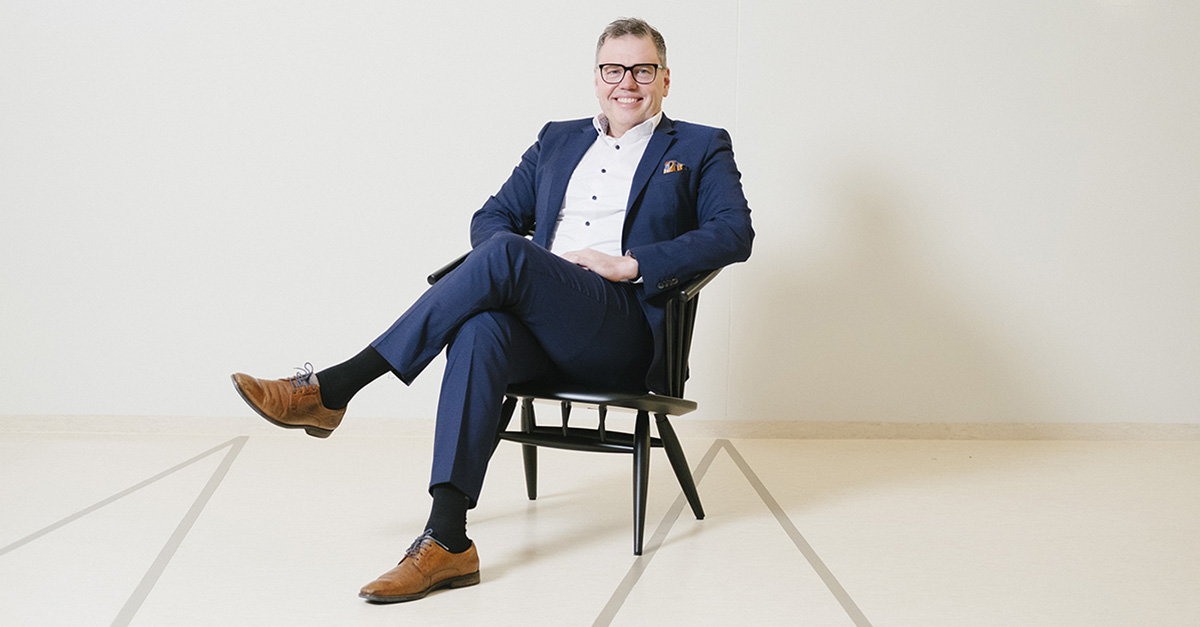Enable. Inspire. Lead by example. Allow. Sponsor. Demand.
When Veli-Matti Mattila (Chair of the Board of Directors at Orion Corporation) asked the participants of Aalto EE’s Executive Arena to describe what a leader needs to do to support continuous learning at the workplace, these were some of the words that came up. The Executive Arena event focusing on competence development was held on May 22, 2024.
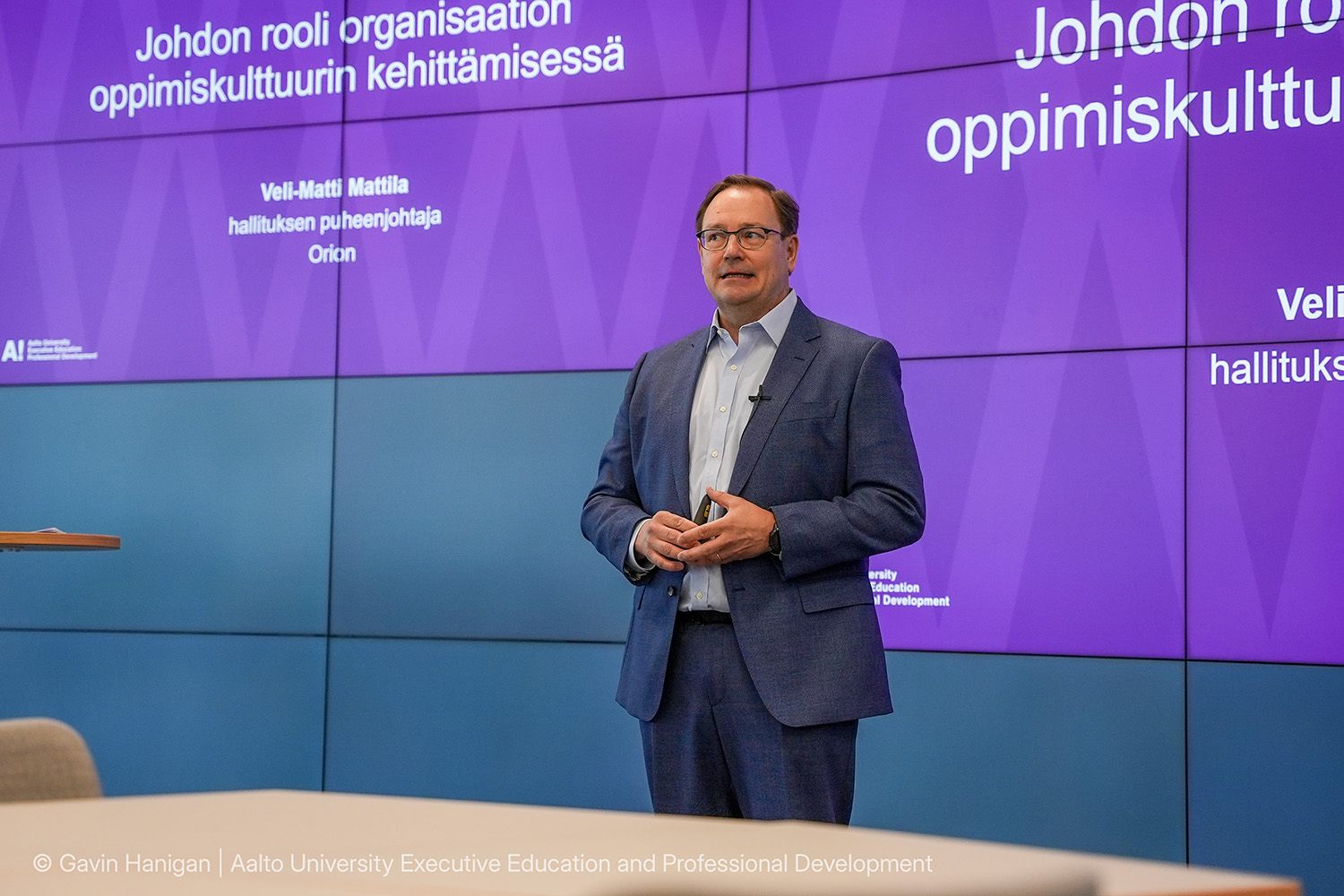
Veli-Matti Mattila shared some lessons he learned during his over 20 years as the CEO of Elisa.
Before Orion, Mattila worked as the CEO of Elisa, telecommunications and digital services company, for more than two decades.
At the event, he shared some of what he had learned during his years at Elisa about how organizational culture can be harnessed to support continuous competence development and why this development is crucial for companies.
Learn from your mistakes and your triumphs
According to Mattila, people at Elisa understood already fifteen years ago that digitalization would change the world – and that it wouldn’t happen without fast and reliable telecommunications networks.
“We quickly realized that our customers’ expectations of experience and quality were only going to grow,” Mattila explained to the more than fifty invited guests who took part in the event.
Mistakes are a gift."
People at Elisa had understood that the way to keep the company ahead of the competition was to develop competence continuously throughout the organization. Such an endeavor is only possible if the values and culture of the organization support continuous learning and development.
One of the things that changed when Elisa began to invest in their new learning culture was that they started to view mistakes primarily as learning opportunities.
“Mistakes are a gift,” Mattila said. “This is a simple idea that became the core of our learning culture.”
Later on, people at Elisa began to view triumphs in a similar manner: they should be shared, because others can learn from them.
In it for the long haul
Mattila emphasized the role of leadership in the development of the organization’s learning culture.
The leaders themselves need to be invested in personal development. They should prioritize learning, adopt leadership behaviors that support development, and find ways to measure and evaluate learning.
Continuous learning must be a part of a leader’s routine and be represented in the way they talk. Whether or not people remember what the leader has said about learning is a clear indicator of their success as a leader.
Competence development and continuous learning need to have a significant role in leadership."
“Competence development and continuous learning need to have a significant role in leadership,” Mattila said.
Neither should competence development be seen as a temporary project, but you need to be in it for the long haul.
“Only continuous development and learning can yield permanent results. Our only long-standing competitive advantage is our ability and willingness to learn.”
Make competence development part of the company strategy
Tom Lindholm (Managing Director at Aalto EE and Head of Lifewide Learning at Aalto University) reminded the participants of the event of the Future of Jobs report published by the World Economic Forum in spring 2023, more than a year ago.
Lindholm invited the participants to imagine what would happen if nearly half of the core competencies of today’s employees became obsolete in four years.
“I feel that this is a matter that isn’t addressed enough,” Lindholm said.
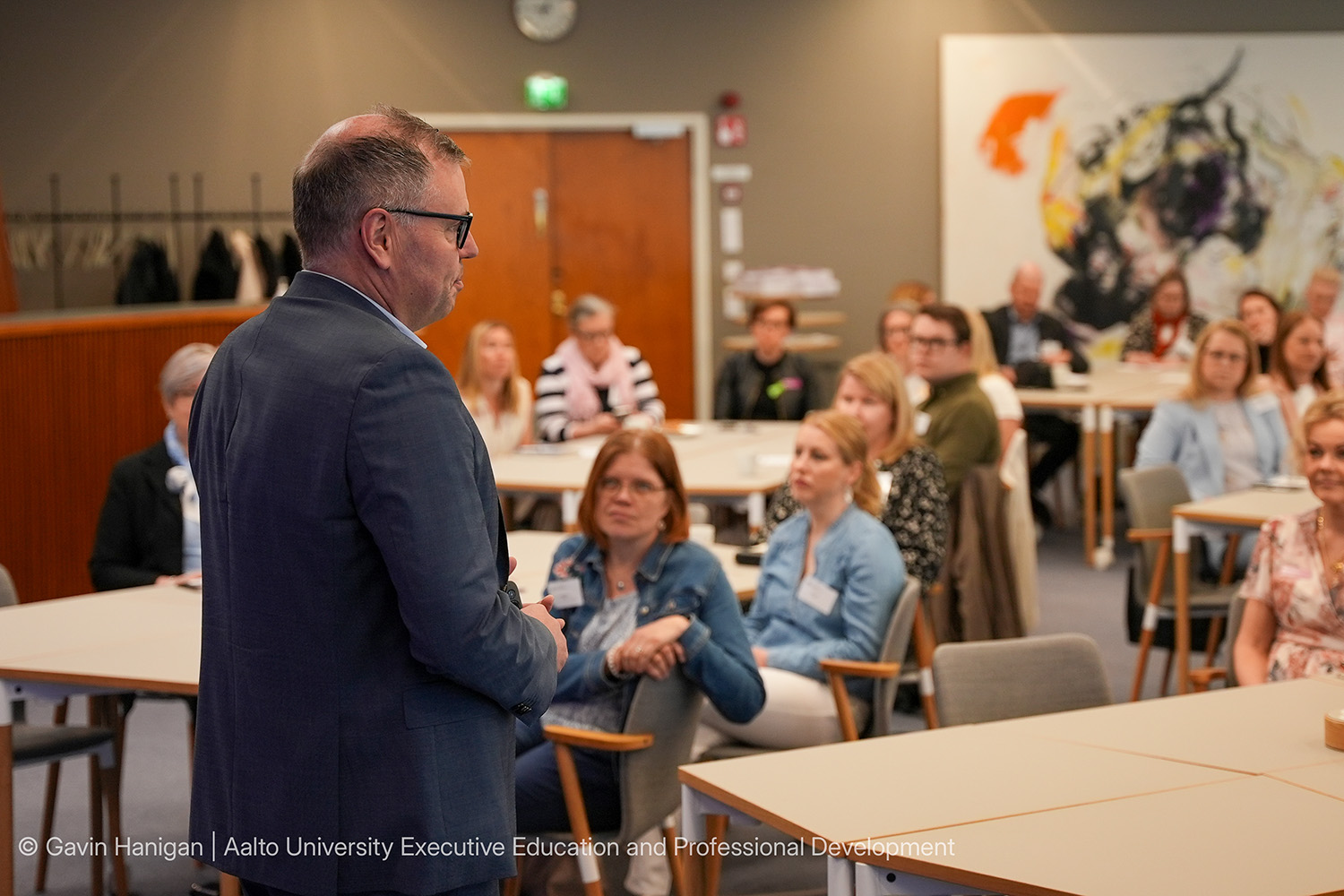
What happens if nearly the half of our core competencies become obsolate in the near future? asked Tom Lindholm from Aalto EE.
Competence development during working life has traditionally been – and still is – mostly individually driven; people participate in courses and training events when they want to.
However, Lindholm emphasized that competence development should be made part of the company’s strategy. Organizations need to ensure that they have the required competence to succeed in the changing world.
“The needs and wants of companies and individuals must be brought together,” Lindholm summed up.
Keep learning light and fun without losing your awareness of it
Johanna Saarinen (Director of Talent Management at Vaisala, a manufacturer of measuring devices and systems) said that everyone at Vaisala needs to be particularly interested in artificial intelligence.
AI is developing at an astounding pace and changing the world as we know it.
“None of us have any idea what the situation will be in two years,” Saarinen said.
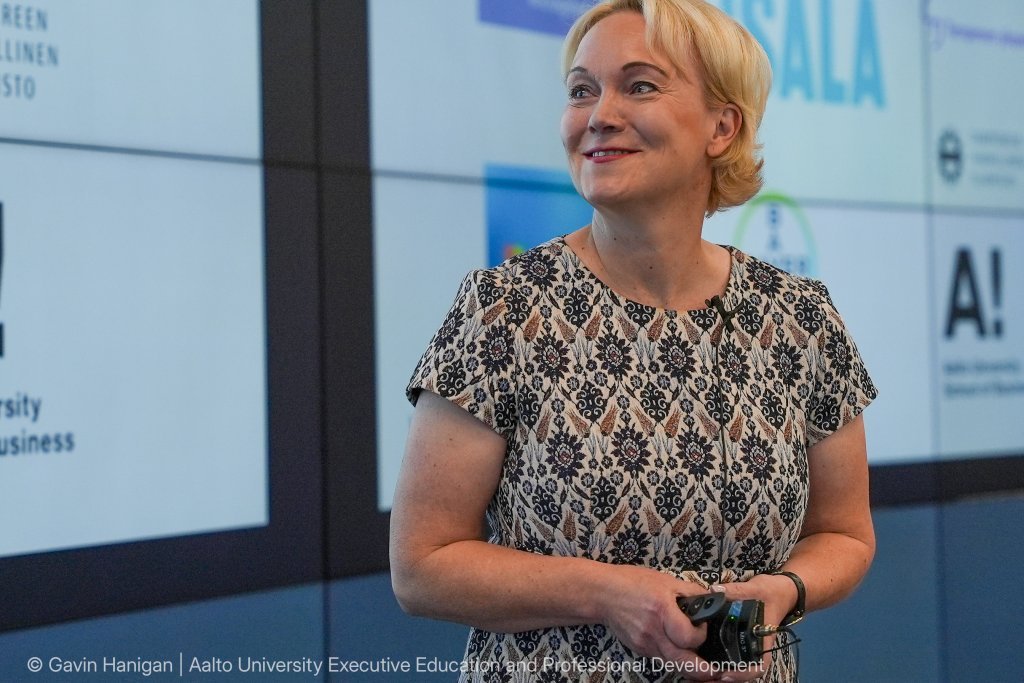
In Johanna Saarinen's team at Vaisala, everyone is encouraged to utilize AI tools as much as they can.
People at Vaisala want to make sure that the company stays on the cutting edge of development. This is why the company’s culture encourages everyone to learn and experiment.
For example, Saarinen’s own team is encouraged to try out different kinds of AI tools and to use them as much as possible.
None of us have any idea what the situation will be in two years."
“Learning should be kept simple, light and fun – without losing sight of what the goals are,” Saarinen advised.
Learning and the ability to learn are also important considerations in recruitment. Job applicants are often asked how they maintain their ability to learn.
Workplace as school
Laura Sivula (Business Area Director of Lifewide Learning at Aalto University and Aalto EE) pointed out that continuous learning must involve continuous interaction between working life, the society and the individual to make sure that the needs of all parties are taken into account and the organization maintains its competitiveness.

According to Laura Sivula, education will become increasingly flexible, multidisciplinary, and international.
“In the future, education will become increasingly flexible, multidisciplinary and international,” Sivula envisioned. An indication of this are the microcredentials that Aalto University is currently heavily investing in.
In the future, universities can use microcredentials to acknowledge other kinds of studies beyond traditional degrees. This is important for making competence development more agile and relevant for the changing needs of working life. Academic validation lends credibility, as the university is vouching that the person has competence in a specific area.
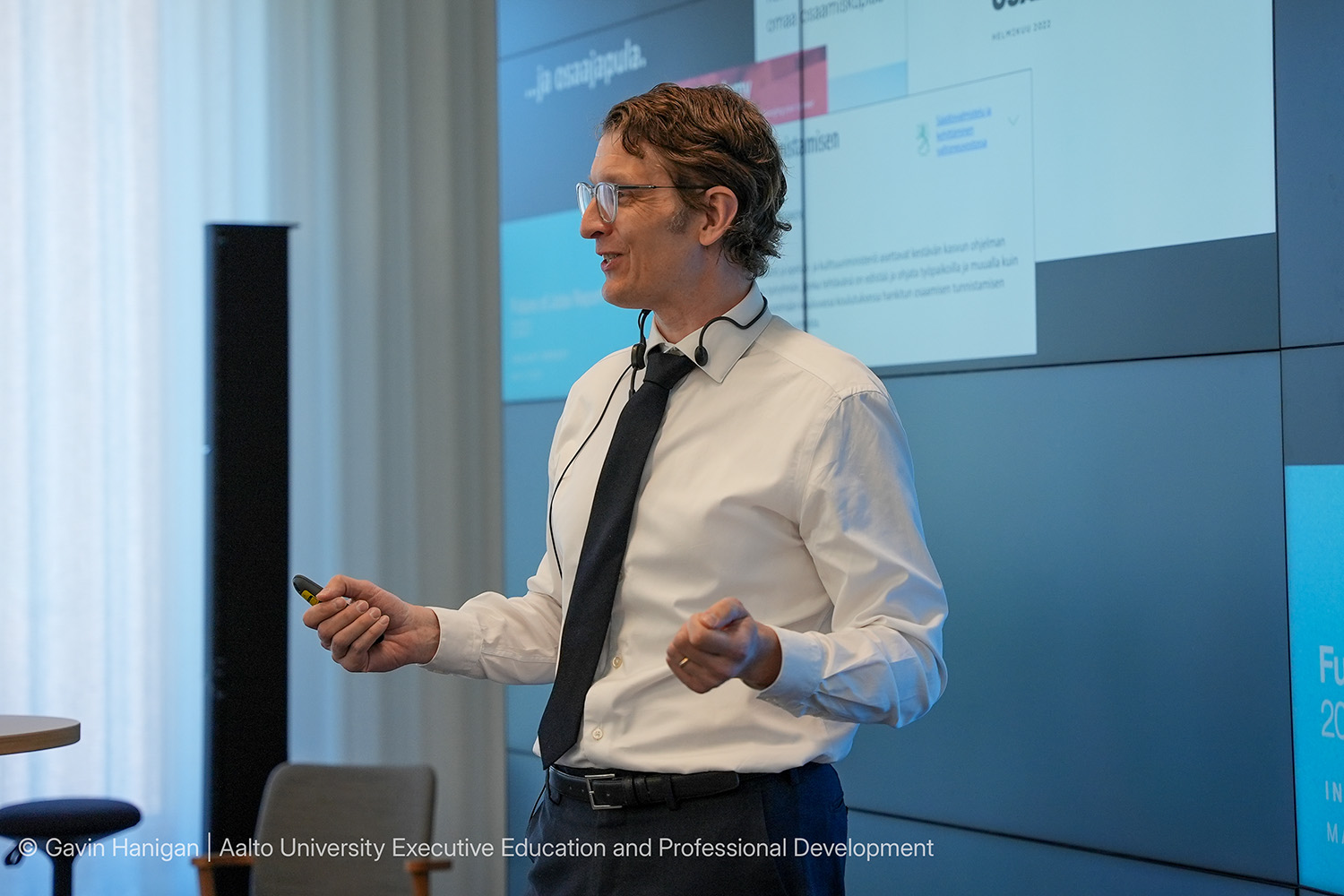
What if the person comes to your organization with the purpose of learning something? asked Risto Sarvas, the editor of the Osaamisen Voima book.
Risto Sarvas, Director of Information Networks program at Aalto and the editor of the Osaamisen Voima book launched during the event, asked the participants to imagine a situation where your organization is only one waypoint along an employee’s path of learning.
What if the person comes to your organization with the purpose of learning something? What if the workplace is a school?
How would that change the organization, its recruitment processes, learning and leadership – the whole organizational structure?
The event functioned as the launch event for the book “Osaamisen voima – Oppiminen kilpailukyvyn ajurina”, which provides skills, information, concepts and examples for changing your organization’s culture of competence and learning. The book is available in Finnish through this link.
Executive Arena is a series of events that bring together decision-makers from different organizations to discuss a wide range of current topics, such as change management, leadership culture, accountability, and artificial intelligence through practical experiences and examples. The events include presentations by Aalto University professors and other experts of the topic at hand. The series provides participants with a chance to network and share their experiences. The next Executive Arena event, which will be held in October 2024, will be centered around the theme of technology leadership.
Want to hear more about Executive Arena? Contact us!
Ulla-Maija Uusitalo
Director, Sales and Account Management
+358 10 837 3776
ulla-maija.uusitalo@aaltoee.fi







